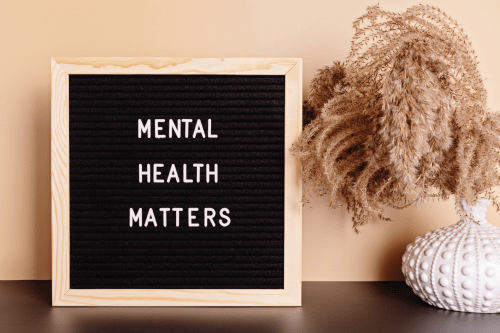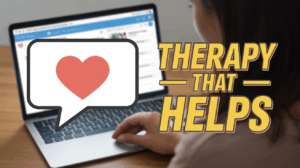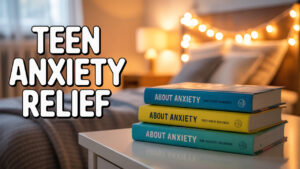Mental Health Resources for Teens
Understanding Teen Mental Health
Mental health is a key part of the development of youth ages 12 to 18. Teens face changes that impact emotional health and behavior. These shifts can trigger mental health symptoms or worsen existing mental health conditions. Supporting youth mental health early helps improve overall well-being and development of children.
Common Mental Health Challenges
Many teens experience mental health issues that affect daily life. These include:
- Anxiety disorder
- Depression
- ADHD and other behavioral disorder diagnoses
- Eating disorders
- Self-harm and suicidal crisis
- Substance use
These mental health disorders may show up as behavioral health symptoms. Left untreated, they can turn into a mental health crisis. Identifying signs of suicide and other early indicators helps teens get support fast.
Importance of Early Identification and Intervention
Early mental health intervention strategies reduce the risk of long-term issues. Parents of children, teachers, and health care providers should watch for mental health concern signs and emotional distress. Intervention from a mental health professional or crisis counselor can guide teens toward recovery.
Types of Mental Health Resources Available
There are many Mental Health Resources designed to meet the needs of teens and their families.
Crisis Intervention Services
Crisis services respond to urgent needs. The 988 Lifeline, Trevor Lifeline, and Text 741-741 connect teens to trained crisis counselors. These services help teens manage emotional health challenges, mental illnesses, and suicidal thoughts.

Organizational Support Services
Non-profit health organizations like Mental Health America, NAMI Cape Cod, and the Jed Foundation offer behavioral health services. These services include support groups, therapy referrals, and evidence-based resources for teens, including trans people, youth in foster care, and people ages 16-24 in career training programs.
Educational Programs
Mental health education for people is critical. Programs like NAMI Basics and NAMI Basics OnDemand offer education for parents and caregivers of children. These programs provide a comprehensive list of tools to understand youth mental health symptoms and make informed decisions. Schools may also offer school-based health services or access to health center support.
The Role of Online Safety
Many teens use the internet to explore identity and connect with others. While online communities can be a safe space, they can also expose teens to mental health stigma, cyberbullying, and abusive relationships.
Impact of Social Media on Teen Mental Health
Social media affects emotional health and mental wellness. It can raise anxiety, harm self-image, and increase risk of behavioral health conditions. Friendly Mental Health Online Resources help teens build awareness about anxiety disorders and other mental health problems.
Strategies for Safe Online Behavior
Support safe behavior online by encouraging teens to:
- Use privacy settings
- Follow supportive online community pages
- Block harmful users
- Talk to a counselor via chat if feeling unsafe
- Use resources like Anxiety Canada for anxiety support
Encouraging Healthy Communication
Communication with adolescents builds trust and emotional safety. Teens need open conversations to share their mental health journey and feel supported.
Importance of Open Dialogue with Teens
Create a judgment-free zone for teens to share concerns. Ask direct questions. Show care, especially if there are signs of emotional distress or behavioral health challenges.

Tools for Effective Communication
Use these tools:
- Active listening
- Supportive language
- Resources for parents like NAMI Basics
- Access to a mental health provider or counselor
- A program for parents to improve communication
Promoting Self-Care Among Teens
Self-care helps manage mental health symptoms and build confidence. It’s part of a strong emotional health routine.
Self-Care Strategies for Teens
Teens can improve emotional health by:
- Sleeping well
- Eating healthy
- Exercising
- Practicing self-expression
- Using mental health medication guides when needed
The Role of Mindfulness and Relaxation Techniques
Mindfulness reduces stress and helps manage behavioral disorder symptoms. Simple breathing, yoga, or journaling helps calm the mind. These tools support teens through emotional health challenges and collective trauma, including childhood trauma.
The Role of Parents and Pediatricians
Parents and pediatricians help detect early signs of a mental health disorder. Their support is key to finding mental health treatment and recovery.
Identifying Signs of Mental Health Struggles
Watch for:
- Changes in sleep, eating, or school habits
- Withdrawal from activities
- Mood swings or aggression
- Risky behaviors
- Mental health symptoms like panic or extreme sadness
These may signal the start of a behavioral health condition or mental illness.
How Parents and Pediatricians Can Support Teens
Parents and health care providers can:
- Refer teens to mental health specialists or treatment centers
- Use a centralized referral service or service locator to find local care
- Promote access to health center options
- Work with a mental health provider to find treatment options
- Offer resources such as books for children or classes for parents
Agencies like the Mental Health Services Administration, Health Center Program, and Health Resources and Services Administration offer Additional Resources for youth mental health support.
Your Partner in Teen Mental Wellness
At Adolescent Mental Health in Orange County, we offer mental health services that include therapy, crisis intervention, and support for emotional health and behavioral health challenges. Whether you’re a teen, parent, or pediatrician, we provide the help needed for every step of the mental health journey.
Contact us to explore convenient options for care.

FAQ's
Teens may show signs like mood changes, withdrawal from friends, poor school performance, changes in sleep or eating habits, or talk of self-harm. These behaviors may point to mental health symptoms linked to depression, anxiety disorder, or another mental health condition. Early support from a mental health professional or health care provider can help manage these issues before they become a crisis.
Parents can support teens by keeping open communication, listening without judgment, and watching for warning signs. Using programs like NAMI Basics or NAMI Basics OnDemand gives parents tools to understand youth mental health and behavioral health conditions. Parents should reach out to a mental health provider or use a service locator to find behavioral health services if their teen needs help.
Teens in a mental health crisis can access immediate help through crisis intervention services. These include the 988 Lifeline, Trevor Lifeline, and Text 741-741, which connect teens with a trained crisis counselor. Many treatment centers and community-based intermediate behavioral health services also offer urgent care, referrals, and emotional health support for youth ages 12–18.
Yes. Many schools offer school-based health services and mental health education programs. These services often include access to a mental health professional, group counseling, and referral to outside care. Some schools also partner with non-profit health organizations to improve access to youth mental wellness programs and reduce mental health stigma.









